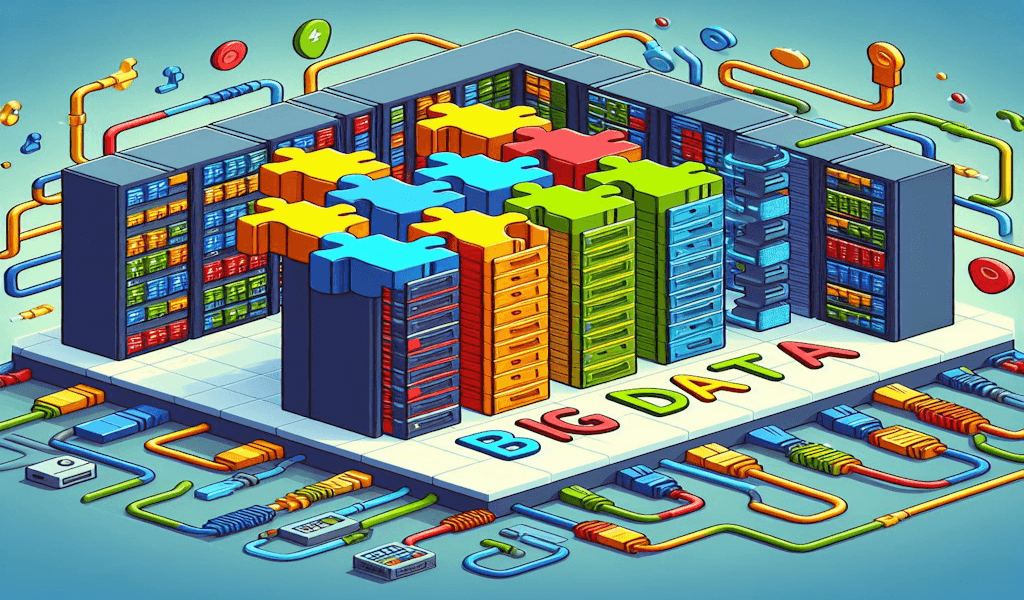Big data is one of the most transformational trends in technology today. With the ability to collect, store, and analyze massive amounts of data, organizations now have unprecedented insights into their customers, operations, and markets. In this post, we’ll explore what Big Data is, its key characteristics, and how it is revolutionizing businesses across industries.
What is Big Data?
Big Data refers to extremely large or complex data sets that traditional data processing applications cannot adequately handle. The defining characteristics of Big Data are often referred to as the three Vs:
- Volume: This refers to the size of big data. Data can be considered big data or not based on the volume. The rapidly increasing volume of data is due to cloud-computing traffic, IoT, mobile traffic, etc. In 2020 alone, we created over 64 zettabytes of data globally.
- Velocity: This refers to the speed at which the data is generated and processed. Data is being produced and refreshed at an incredible speed. For example, over 500 million tweets are sent per day.
- Variety: This refers to the diversity of data sources and formats. Big data comes from various sources and in many formats. This includes structured data like SQL databases as well as unstructured data like emails, video files, and social media posts
Newly Considered Vs include:
- Veracity: This refers to the quality and reliability of data. Since the data is collected from multiple sources, we need to check the data for accuracy and consistency before using it for business insights.
- Value: This refers to the usefulness of gathered data for your business or purpose. Data by itself, regardless of its volume, usually isn’t very useful. Tto be valuable, it needs to be converted into insights or information, and that is where data processing steps in.
- Variability: This refers to the changes in the meaning, structure, and quality of data over time or across sources. Variability can pose challenges for data integration, analysis, and interpretation, as it can affect the consistency and accuracy of data.
- Viability: It refers to the ability to identify the most relevant and useful data from the large and complex data sets. It is based on the idea that only a small fraction of the data (about 5%) is responsible for most of the benefits and insights. Viability can help data scientists to focus on the data that matters most for their business or purpose, and to avoid wasting time and resources on irrelevant or redundant data.

What are the Key Sources of Big Data?
Some major sources that contribute to the growth of Big Data include:
- Social media platforms: Sites like Facebook, Twitter, and Instagram generate enormous amounts of unstructured data in the form of posts, likes, shares, and comments.
- Digital sensors: Sensors embedded in smartphones, wearables, industrial machines, and more continuously produce data on user behaviors, industrial processes, transportation patterns and more.
- Transactional data: Every purchase, email, click, call, etc. is captured as structured data from sources like ecommerce platforms, CRM systems, and web servers.
- Public data: Freely available data from government agencies and public records provide a rich source of datasets for analysis.
Why Big Data Matters?
Here are some key ways that Big Data is transforming how businesses operate:
- Customer insights: By analyzing customer data from website traffic, purchases, social posts, and more, brands can deliver personalized experiences and predict customer needs.
- Operational efficiency: Analyzing internal data on production, logistics, and sales helps organizations optimize processes.
- Data-driven decisions: With comprehensive data, leaders can basing strategic decisions on evidence-based insights rather than instincts.
- New products and services: Big data enables companies to create innovative offerings tailored to customer preferences.
- Market analysis: Detailed data on demographics, psychographics, and behaviors provides crucial intelligence to guide marketing, investment, and competitive strategies.
Challenges with Big Data
While Big Data brings massive benefits, it also comes with some significant challenges:
- Volume and Variety:The sheer enormity and diversity of data makes it unwieldy to store, process, and analyze. New tools and techniques are needed.
- Velocity: The speed at which data is produced necessitates real-time analytics and frequent data processing.
- Cleaning and organizing: With messy, inconsistent raw data, massive effort is required to transform it into usable information.
- Security and privacy: Collecting and storing huge customer data introduces new risks around hacking, leaks, and misuse. Strict governance is required.
- Talent gap: Organizations need data scientists with specialized skills like machine learning, programming, statistics to maximize value from big data.

The Future of Big Data
As Big Data technology and analytical capabilities mature, we can expect some exciting developments in the future:
- Democratization of insights: Self-service analytics tools will enable more employees to access, analyze, and act on data without specialized training.
- AI and ML adoption: Advanced analytical techniques like machine learning and AI will uncover hidden correlations and actionable findings.
- Predictive analytics: With bigger historical data sets, predictive modeling will provide highly accurate forecasts of future trends and behaviors.
- Rise of data lakes: Structured databases will be complemented by massive data lake repositories that store raw data efficiently.
- Edge computing: Processing data near the source will reduce latency, costs, and strain on networks for IoT devices and real-time analytics.
Big Data is no passing fad. It is transforming competition across every industry. Companies that embrace data-driven decision making and adopt modern data strategies will gain a distinct competitive advantage. The future belongs to organizations that harness the power of Big Data.





